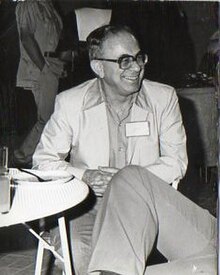
West Asia, also called Western Asia or Southwest Asia, is the westernmost region of Asia. As defined by most academics, UN bodies and other institutions, the subregion consists of Anatolia, the Arabian Peninsula, Iran, Mesopotamia, the Armenian highlands, the Levant, the island of Cyprus, the Sinai Peninsula and the South Caucasus. The region is separated from Africa by the Isthmus of Suez in Egypt, and separated from Europe by the waterways of the Turkish Straits and the watershed of the Greater Caucasus. Central Asia lies to its northeast, while South Asia lies to its east. Twelve seas surround the region (clockwise): the Aegean Sea, the Sea of Marmara, the Black Sea, the Caspian Sea, the Persian Gulf, the Gulf of Oman, the Arabian Sea, the Gulf of Aden, the Red Sea, the Gulf of Aqaba, the Gulf of Suez, and the Mediterranean Sea. West Asia contains the majority of the similarly defined Middle East. The Middle East is a political term that has changed many times depending on political and historical context while West Asia is a geographical term with more consistency. It excludes most of Egypt and the northwestern part of Turkey, and includes the southern part of the Caucasus.

Mizrahi Jews, also known as Mizrahim (מִזְרָחִים) or Mizrachi (מִזְרָחִי) and alternatively referred to as Oriental Jews or Edot HaMizrach, are terms used in Israeli discourse to refer to a grouping of Jewish communities that lived in the Muslim world. Mizrahi is a political sociological term that was coined with the creation of the State of Israel. It translates as "Easterner" in Hebrew. The term Mizrahi is almost exclusively applied to descendants of Jewish communities from North Africa and Asia; in this classification are the descendants of Mashriqi Jews who had lived in Middle Eastern countries, such as Yemenite Jews, Iranian Jews, Kurdish Jews, Turkish Jews, Egyptian Jews, Syrian Jews, Lebanese Jews, Iraqi Jews, Jordanian Jews, Saudi Arabian Jews, Emirati Jews, Kuwaiti Jews, Bahraini Jews, Qatari Jews, Omani Jews; as well as the descendants of Maghrebi Jews who had lived in North African countries, such as Algerian Jews, Libyan Jews, Moroccan Jews, and Tunisian Jews. These various Jewish communities were first officially grouped into a singular identifiable division during World War II, when they were distinctly outlined in the One Million Plan of the Jewish Agency for Israel, which detailed the methods by which Jews of the diaspora were to be returned to the Land of Israel after the Holocaust.
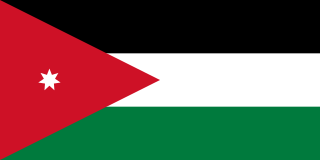
The Jordanian administration of the West Bank officially began on April 24, 1950, and ended with the decision to sever ties on July 31, 1988. The period started during the 1948 Arab-Israeli War, when Jordan occupied and subsequently annexed the portion of Mandatory Palestine that became known as the West Bank, including East Jerusalem. The territory remained under Jordanian control until it was occupied by Israel during the 1967 Six Day War and eventually Jordan renounced its claim to the territory in 1988.
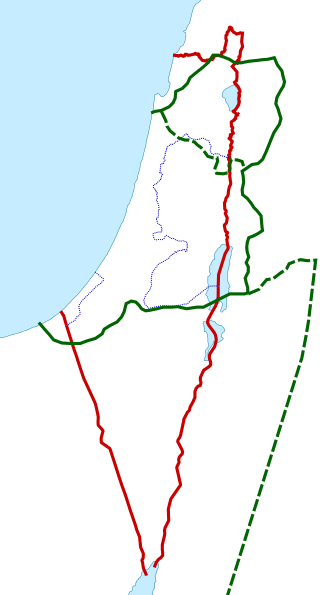
Palestine is a geographical region in West Asia. It is usually considered to include modern-day Israel and the State of Palestine, though some definitions also include parts of northwestern Jordan. Other historical names for the region include Canaan, the Promised Land, the Land of Israel, or the Holy Land.
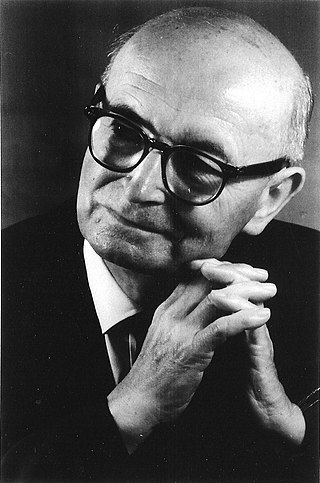
Shelomo Dov Goitein was a German-Jewish ethnographer, historian and Arabist known for his research on Jewish life in the Islamic Middle Ages, and particularly on the Cairo Geniza.

The Institute for Palestine Studies (IPS) is the oldest independent nonprofit public service research institute in the Arab world. It was established and incorporated in Beirut, Lebanon, in 1963 and has since served as a model for other such institutes in the region. It is the only institute in the world solely concerned with analyzing and documenting Palestinian affairs and the Arab–Israeli conflict. It also publishes scholarly journals and has published over 600 books, monographs, and documentary collections in English, Arabic and French—as well as its renowned quarterly academic journals: Journal of Palestine Studies, Jerusalem Quarterly, and Majallat al-Dirasat al-Filistiniyyah. IPS's Library in Beirut is the largest in the Arab world specializing in Palestinian affairs, the Arab–Israeli conflict, and Judaica.
Oleg Grabar was a French-born art historian and archeologist, who spent most of his career in the United States, as a leading figure in the field of Islamic art and architecture in the Western academe.
Bi'ina or al-Bi'na is an Arab town in the Northern District of Israel. It is located east of Akko. In 2003, Bi'ina merged with Majd al-Krum and Deir al-Asad to form the city of Shaghur, but was reinstated as a local council in 2008 after Shaghur was dissolved. Bi'ina has a mostly Muslim population (92%) with a small Christian minority (8%); in 2022 its population was 8,629.

Walid Khalidi is a Palestinian historian who has written extensively on the Palestinian exodus. He is a co-founder of the Institute for Palestine Studies, established in Beirut in December 1963 as an independent research and publishing center focusing on the Palestine problem and the Arab–Israeli conflict, and was its general secretary until 2016.

The postage stamps and postal history of Israel is a survey of the postage stamps issued by the state of Israel, and its postal history, since independence was proclaimed on May 14, 1948. The first postage stamps were issued two days later on May 16, 1948. Pre-1948 postal history is discussed in postage stamps and postal history of Palestine.

The following outline is provided as an overview of and topical guide to the State of Palestine:

Edward Wadie Said was a Palestinian-American philosopher, academic, literary critic, and political activist. As a professor of literature at Columbia University, he was among the founders of post-colonial studies. As a cultural critic, Said is best known for his book Orientalism (1978), a foundational text which critiques the cultural representations that are the bases of Orientalism—how the Western world perceives the Orient. His model of textual analysis transformed the academic discourse of researchers in literary theory, literary criticism, and Middle Eastern studies.
Nur ad-Din Masalha commonly known in English as Nur Masalha is a Palestinian writer, historian, and academic.
The Peasants' Revolt was a rebellion against Egyptian conscription and taxation policies in Palestine. While rebel ranks consisted mostly of the local peasantry, urban notables and Bedouin tribes also formed an integral part of the revolt. This was a collective reaction to Egypt's gradual elimination of the unofficial rights and privileges previously enjoyed by the various classes of society in the Levant under Ottoman rule.
Qasim Pasha al-Ahmad was the chief of the Jamma'in subdistrict of Jabal Nablus during the Ottoman and Egyptian periods in Palestine in the mid-19th century. He also served as the mutassalim of Jerusalem between 1832 and 1833. Qasim headed the Qasim clan, a prominent rural family of Jabal Nablus. He led the peasants of Palestine in their revolt against the Egyptian rule of Ibrahim Pasha in 1834. Following the revolt's suppression, he was captured and executed by the authorities.

Jacob M. Landau was Professor Emeritus in the Department of Political Science at the Hebrew University of Jerusalem.

Afro-Palestinians are Palestinians of black African heritage. A minority of Afro-Palestinians, estimated population between 200-450, reside in an African enclave around the Bab al-Majlis, in the Muslim Quarter of Jerusalem. Some of the community dwell in other areas of Jerusalem such as Beit Hanina and A-Tur.
Abraham Nahum Polak (sometimes referred to as A. N. Polak or Poliak; born 2 September 1910, died 5 March 1970) was an Israeli historian, a professor at the Tel Aviv University since its inception, professor of medieval history and founder of the department of Middle-Eastern History. His main areas of research were Jewish history, Arab history, nations of Islam and Africa and the history of the Khazars.
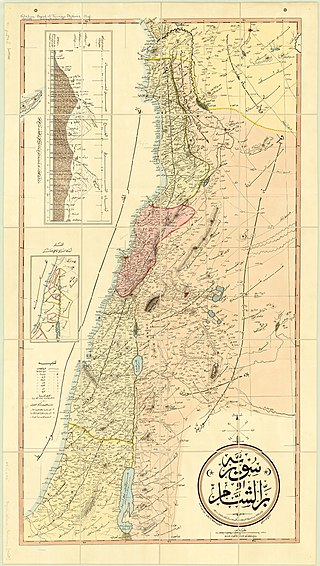
The Syrian Peasant Revolt was an armed uprising of Levantine peasant classes against the rule of Ibrahim Pasha of Egypt in 1834–35. The revolt took place in areas of Ottoman Syria, at the time, ruled by the semi-independent ruler of Egypt, who conquered the region from loyal Ottoman forces in 1831.
